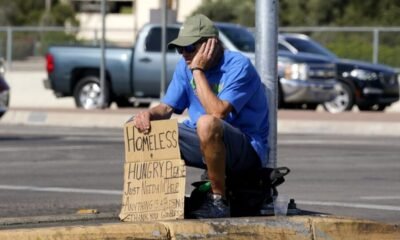affirmative action
MONICA YELIN: Unpacking Modern Racism – Are We Ignoring Real Issues While Fanning the Flames of Division?

The ongoing debate surrounding diversity, equity, and inclusion (DEI) policies is igniting a passionate dialogue about identity and empowerment in American society. Critics argue that narratives promoting victimhood can hinder progress, particularly among Hispanic communities, who embody a diverse set of achievements and contributions.
As discussions of racism have evolved in the U.S., some say they have been co-opted by factions that profit from portraying minorities as victims. A Hispanic community leader points to the persistent stereotypes that confine individuals to narrow roles, arguing these narratives do more damage than good and obscure the real strides toward equality.
Calls for marginalized groups to “speak up” often raise the question: who is perpetuating these notions of inferiority? The assertion is that it’s not the average hardworking American who recognizes the worth and capability of all individuals, regardless of background.
The prevalent victimhood mentality proposes that minorities, particularly Hispanics, require ongoing protection. While portrayed as beneficial, certain media portrayals and political messages may serve to cement these views instead of breaking them down. Accepting a victim label can dilute personal agency and suggest that achievements stem from pity rather than merit.
This reliance on a victim narrative can create dependence on perceived saviors, fostering an environment where government intervention is seen as the only solution. However, many assert that Hispanics seek equal opportunities rather than handouts—a position that promotes unity and inclusivity instead of division.
There is concern that DEI initiatives risk perpetuating dependency rather than empowerment. Programs like affirmative action, while well-intentioned, may inadvertently imply that success is achievable only through external aid rather than individual effort, undermining the hard work that defines achievement.
Moreover, ineffective government policies aimed at minoritized communities often overlook crucial issues such as crime and drug trafficking. Ironically, those advocating for minority protections may be failing to address the very adversities affecting these communities, thereby compounding problems rather than solving them.
As instances of racism are dissected in the public discourse, some argue that the frequency with which accusations are made can dilute genuine cases of prejudice, rendering them less impactful.
The emergence of reverse racism—a cycle where hostility is directed toward white Americans as a form of retribution—raises ethical concerns regarding fairness and justice. The fight against discrimination should remain unequivocal, acknowledging that prejudice is unacceptable regardless of its target.
For true progress, it is essential to instill values such as hard work and personal responsibility, which span beyond racial divides. Success should be accessible to everyone, defined by effort rather than skin color.
The challenge now is to redefine how Hispanics view themselves and their capabilities. They are not merely beneficiaries of DEI initiatives; they are entrepreneurs and leaders whose contributions enhance the fabric of society. Rejecting imposed labels and embracing a narrative of merit over victimhood is vital.
The call to action is clear: empower minority voices to shape their own identities and futures. By challenging divisive rhetoric and fostering a climate of aspiration, future generations can grow up confident in their ability to thrive through determination and hard work.
Monica Yelin is the Executive Director of the Hispanic Liberty Alliance.


















